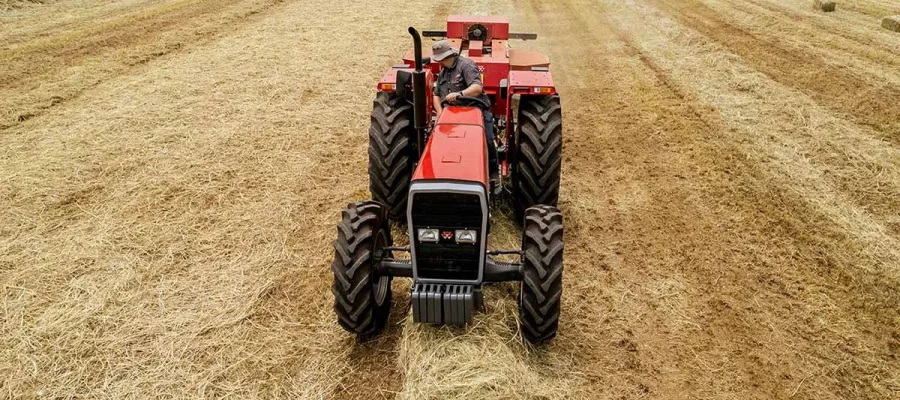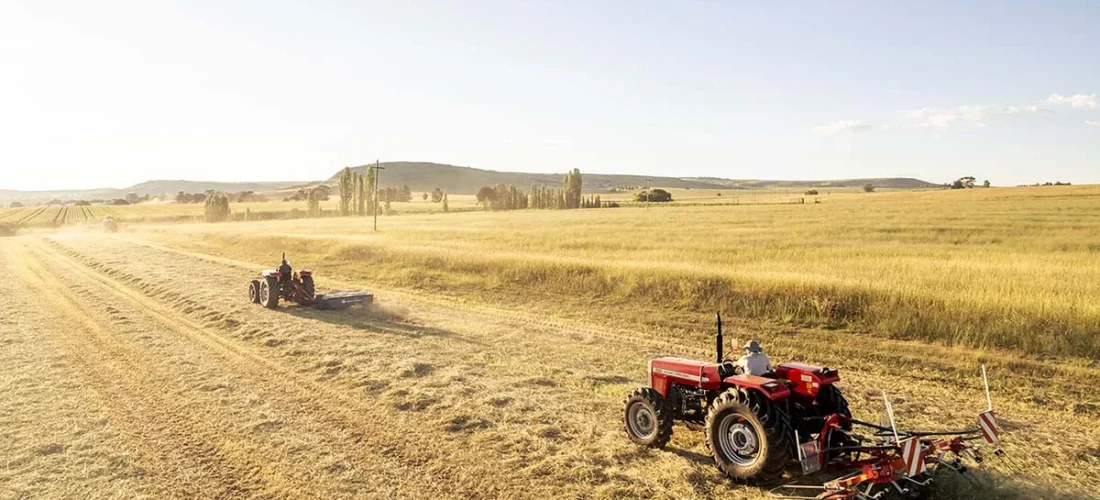
- November 26, 2024
- By: Massey Ferguson Somalia
- in: Agricultural Machinery, Massey Ferguson Tractors

Agriculture is central to Somalia’s economy, with sorghum and maize ranking among the nation’s most important crops. These grains not only serve as staples in the local diet but also play a critical role in feeding livestock and generating income for farmers. Despite their importance, Somali farmers face several challenges that hinder productivity, ranging from poor soil quality to water scarcity and labor shortages. However, the introduction of tractors and mechanized farming techniques, particularly with Massey Ferguson tractors, has opened up new opportunities for efficient and sustainable crop production in the region.
Sorghum and maize are vital to Somali agriculture due to their adaptability to the country’s often harsh environmental conditions. Sorghum, known for its drought resistance, thrives in arid regions and is a reliable food source even during dry spells. Similarly, maize grows quickly and offers a high yield, making it an essential crop for subsistence and commercial farming purposes.
These crops serve various purposes:
However, meeting the increasing demand for these crops at both local and international levels is a challenge, especially when relying on traditional farming methods.
Somali farmers face numerous obstacles when cultivating sorghum and maize, including:
Unpredictable Weather
Frequent droughts and uneven rainfall make it difficult for crops to grow consistently, affecting both yield and quality.
Labor Shortages
Farming in Somalia often relies on manual labor, which can be time-consuming and expensive. This limits how much land can be cultivated.
Poor Soil Quality
Over time, soil fertility in some parts of Somalia has degraded due to over-farming, erosion, and the lack of proper soil management practices.
Lack of Modern Tools
Traditional farming techniques are less effective and require significant physical effort. Farmers without access to machinery struggle to prepare the land, plant seeds, and harvest crops efficiently.
Post-Harvest Losses
Without the right tools, farmers often lose a significant portion of their yield during harvesting and transportation.
The adoption of tractors has been a game-changer for Somali farmers. Tractors allow farmers to mechanize labor-intensive tasks, addressing many of the challenges limiting productivity.
Modern tractors, such as those from Massey Ferguson, are equipped with features that make land preparation more efficient. Using implements like disc harrows or mouldboard ploughs, tractors can till the soil thoroughly, breaking down hard clumps and eliminating weeds. This ensures the soil is aerated and nutrient-rich, creating an ideal environment for planting sorghum and maize.
By attaching planters or seed drills, tractor-based farming ensures even seed distribution and proper depth placement. This results in better germination rates and higher crop yields compared to manual planting.
Tractors can play a critical role in setting up and managing irrigation systems, helping farmers maximize water use in drought-prone areas. For crops like sorghum, which requires minimal water, efficient irrigation improves growth even during dry spells.
Mechanized harvesting minimizes losses and ensures that crops are gathered quickly, securing more of the yield. Farm trailers attached to tractors make transporting harvested crops to storage or the market much faster and more economical.
By using implements that are compatible with tractors, farming practices like contour plowing can prevent soil erosion, helping to maintain land fertility over time.
Massey Ferguson tractors have become the backbone of mechanized agriculture in Somalia. With diverse models available, including the MF 240, MF 260, MF 375, and MF 385, Somali farmers can choose machines that suit their farm size and specific needs.
Versatility
Massey Ferguson tractors are compatible with a wide range of implements, making them suitable for tasks like ploughing, tilling, planting, and even irrigation management.
Fuel Efficiency
The economic operation of Massey Ferguson tractors ensures affordability for farmers, even in regions where fuel costs may be high.
Durability
Designed to perform in tough conditions, these tractors can withstand Somalia’s challenging terrains and climatic conditions, ensuring long-term reliability.
Accessibility
With trusted dealers like Massey Ferguson Somalia offering both new and refurbished tractors at competitive prices, farmers have greater access to mechanized solutions.
Sorghum and maize farming in Somalia are no longer bound by the constraints of traditional methods. By investing in Massey Ferguson tractors, farmers can overcome challenges like labor shortages and unpredictable weather, ensuring consistent production. Beyond increasing yields, these tractors promote sustainable farming by improving soil health and resource efficiency.
Through mechanization, Somali agriculture is taking a step toward modernization. Sorghum and maize farmers now have the tools to not only meet local consumption demands but also expand into regional and international markets. This progress underscores the critical role of tractors as catalysts in building a thriving and resilient agricultural sector in Somalia.

Post a Comment